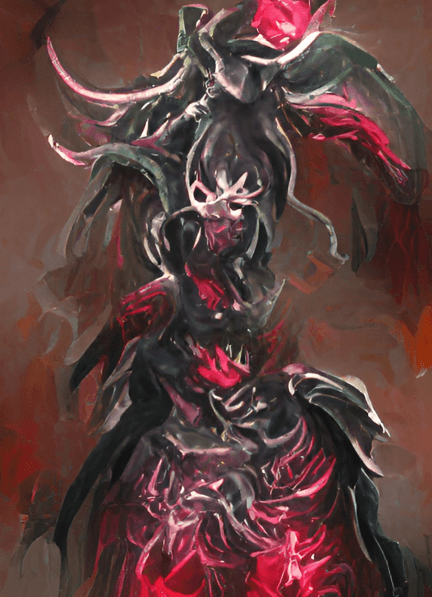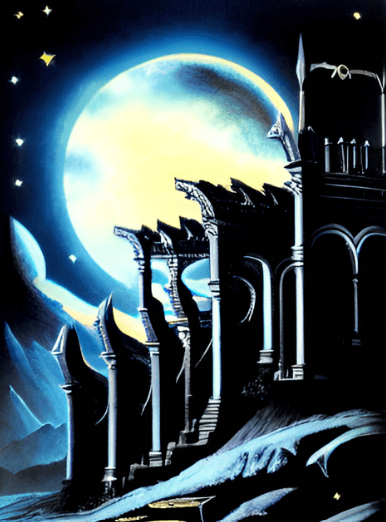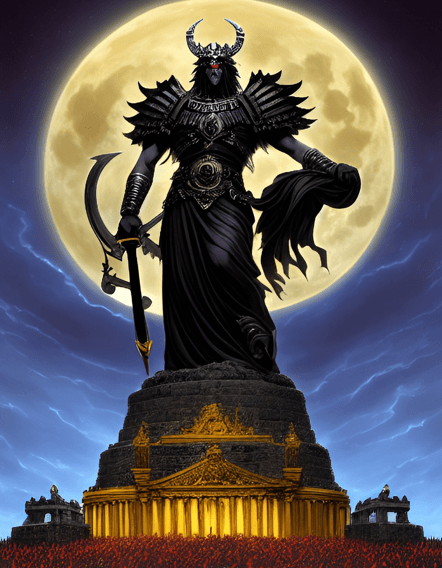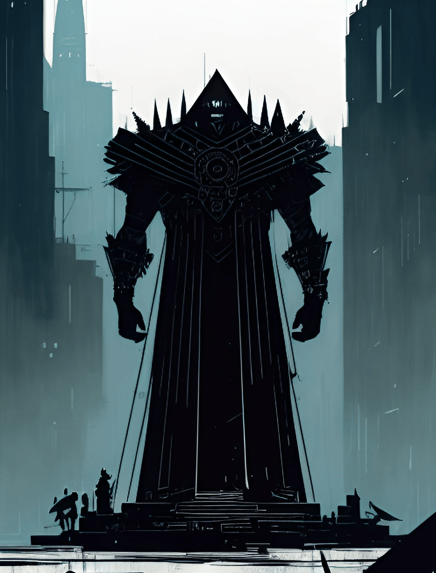Greek mythology is abrim with compelling stories, larger-than-life characters, and profound symbolism. One figure that often piques the interest of mythology enthusiasts is the personification of darkness, Erebus.
But who is this enigmatic character, and what role does it play in the Greek mythological tapestry? In this post, we will explore the origins, appearance, behavior and characteristics, and similar mythical beings related to the personification of darkness in Greek mythology.
MORE LIKE THIS: Minoan mythology: A precursor to ancient Greek culture
Origins of Erebus

Erebus, also spelled as Erebos, is the personification of darkness in Greek mythology. He is a primordial deity, one of the first-born entities that emerged at the beginning of the universe. Erebus was born from Chaos, a vast and formless void that preceded the creation of the world. As a primordial deity, Erebus represents a fundamental aspect of the cosmos – darkness.
According to the ancient poet Hesiod, Erebus and his sister, Nyx (the personification of night), were among the first beings to emerge from Chaos. Together, they fathered a number of children, including Aether (the personification of light and the upper atmosphere) and Hemera (the personification of day). This union of darkness and night created a cycle of light and dark that characterizes the world as we know it.
Appearance: A Shadowy Presence

Erebus is often described as a shadowy figure, shrouded in darkness and mystery. The ancient Greeks did not typically depict primordial deities in anthropomorphic forms, so there are no definitive visual representations of Erebus.
However, his association with darkness and shadow can be seen as an embodiment of the unknown, the hidden, and the unseen.
Behavior and Characteristics of Erebus

Erebus’s primary role in Greek mythology is to represent darkness and obscurity. He is often depicted as a shadowy figure that dwells in the deepest regions of the underworld, where the souls of the dead reside. It is important to note that the concept of darkness associated with Erebus is not inherently evil or malevolent. Rather, it is a natural part of the cosmic balance that exists between light and darkness.
As a primordial deity, Erebus is not as active or involved in human affairs as some of the other gods and goddesses in Greek mythology. However, his presence is still felt in the way darkness envelops the land during the night, or how shadows can obscure one’s path. In this sense, Erebus serves as a reminder of the unknown and the hidden aspects of our world.
Similar Mythical Beings to Erebus

The concept of darkness and its personification is not unique to Greek mythology. Many other cultures feature figures that represent darkness, night, or shadow in their mythological traditions. Here are some examples:
Kuk, the Egyptian god of darkness: Kuk is an ancient Egyptian deity associated with darkness and chaos. He is a member of the Ogdoad, a group of eight primordial gods and goddesses representing different aspects of the cosmos. Kuk represents the darkness that existed before the creation of the world.
Nox, the Roman goddess of night: Nox is the Roman equivalent of Nyx, the Greek goddess of night and sister of Erebus. Although Nox is not a direct personification of darkness, she is closely associated with it as the goddess of night.
Ratri, the Hindu goddess of night: Ratri is a Hindu goddess associated with night and darkness. She is the sister of Ushas, the goddess of dawn, and their interaction represents the eternal cycle of day and night.
Hine-nui-te-pō, the Māori goddess of night and death: In Māori mythology, Hine-nui-te-pō is the goddess of night and death, associated with darkness and the underworld. She plays a crucial role in the story of the demigod Māui, who sought to gain immortality for humanity but ultimately failed.
Get in Touch
Did you enjoy reading about the Erebus and the personification of darkness in Greek mythology?
If you know of any other representations of the night or shadowy darkness, please get in touch using the comment section below. We always love to read the comments from our readers.
For enquiries, contact me at richard@mythologyplanet.com
If you’d like to learn more about Erebus and the other primordial deities in Greek mythology, check out the informative video below by Mythology Explained.
